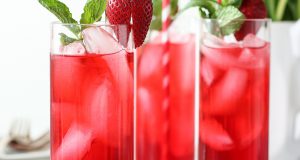Studies are different when it comes to the impact of the food that we take in our body. One thing is certain, there are foods that should be on the menu every day if we want to have healthy eyes and excellent vision.
Kale, spinach and collard greens
Lutein and zeaxanthin are antioxidants that protect and maintain healthy cells, and the green plants contain them in large amounts. It is a vegetable rich in vitamins A, B12, C and calcium, which is good for the eyes. Other sources include kale, beets, corn, peas, broccoli, lettuce and green beans.
Oranges, grapefruit juice and eggs
If you’re not a fan of vegetables in first aid will jump in orange, grapefruit and eggs. Fortunately, eggs contain a relatively high proportion of zinc, are a good source of omega-3 fatty acids and lutein. They do not contain such an amount of carotenoids as leafy vegetables, but the body more easily absorbs these oxidants from eggs. Oranges and grapefruit are great sources of lutein and zeaxanthin.
Vegetables
Broccoli, Brussels sprouts, cauliflower, green and red peppers are a little package rich in vitamin C.
Nuts and seeds
Vitamin E protects the cells in our eyes from free radicals and slows the progression of cataracts and age-related macular degeneration (AMD). Eat only one gram of sunflower seeds or almonds a day and time you enter a third of the daily value of vitamin E. Feel free to treat yourself and wheat germ, almonds, peanuts and peanut butter.
Carrot
This vegetable supplies eyes of beta carotene, which strengthens the night vision. The provitamin A protects the entire body from free radicals with a specific protective effect on the eyes and skin. Contributions to protect against atherosclerosis, and helps renew the skin and mucous membranes.
Pisces
Omega 3 fatty acids make miracles throughout the body including the eyes. Assist the development of vision, retinal function and protect the eyes from drying out. Fish such as salmon, tuna, mackerel and anchovies are usually the best choice for getting omega-3 fatty acids.
Oysters and liver
Zinc deficiency is associated with impaired vision and poor night vision. However, consuming a lot of nutrients they can make a miracle like slowing age-related macular degeneration, which is common in people older than 50 years. Oysters are a great source of zinc. If you are a fan of oysters and liver replace red meat, milk, baked beans and whole grains.
Photo Ahmed Sinan | Photo Sodexo USA / CC BY
 Healthy Life and Beauty Health and Beatuy information and advice you can trust.
Healthy Life and Beauty Health and Beatuy information and advice you can trust.





